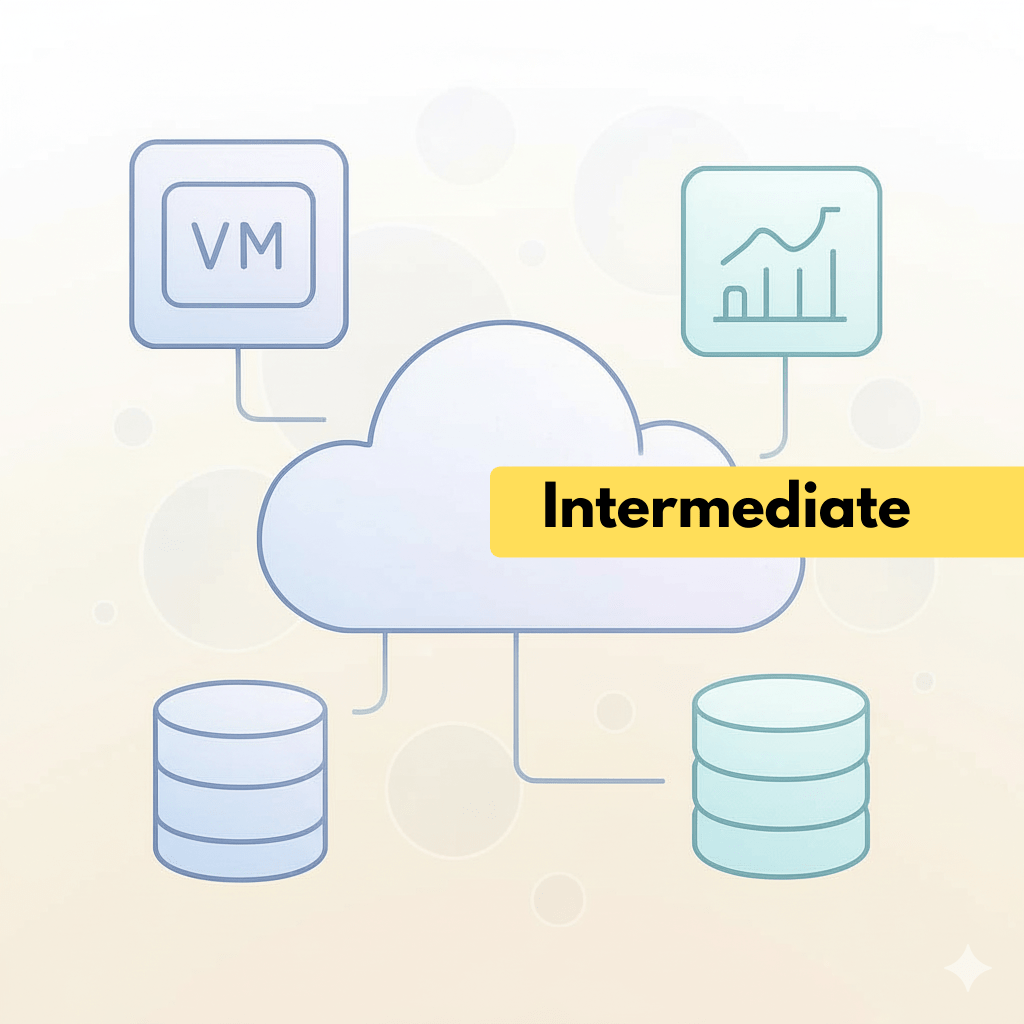Intermediate Level GCP Interview Questions and Answers (2025 Guide)

Last updated: September 2025
If you’re preparing for a Google Cloud Platform (GCP) interview, intermediate-level questions often test your hands-on knowledge of the most widely used services: Compute Engine, Cloud Storage, IAM, VPC networking, Pub/Sub, BigQuery, and Kubernetes Engine (GKE).
These questions go a step beyond the basics and evaluate your ability to design, troubleshoot, and optimize cloud solutions.
Intermediate-Level GCP Interview Questions
1. How does GCP handle autoscaling in Compute Engine?
Answer: GCP supports autoscaling through managed instance groups (MIGs). You define scaling policies based on metrics like CPU utilization, load balancing capacity, or custom metrics. The group automatically adds/removes VMs to match demand.
Explanation: Autoscaling ensures high availability and cost optimization by matching resources with real-time workloads.
2. What are Preemptible VMs in GCP and when should you use them?
Answer: Preemptible VMs are short-lived, low-cost instances that GCP may terminate at any time (after a max of 24 hours). They are ideal for batch processing, CI/CD jobs, and fault-tolerant workloads.
Explanation: They reduce costs by up to 80% compared to regular VMs but should not be used for critical workloads.
3. How is IAM structured in GCP?
Answer: IAM in GCP is based on three concepts: Members (who), Roles (what they can do), and Resources (where). Policies define the relationship between these.
Explanation: IAM ensures fine-grained access control across resources and services.
4. What’s the difference between GCP VPC Peering and Shared VPC?
Answer:
- VPC Peering: Connects two different VPCs so resources can communicate privately.
- Shared VPC: Allows multiple projects to share a common VPC, enabling centralized networking.
Explanation: Shared VPC is for centralized enterprise networks, while peering is for inter-project communication.
5. How does Cloud Pub/Sub ensure message delivery?
Answer: Pub/Sub guarantees at least-once delivery. Messages are stored until acknowledged by subscribers. Dead-letter topics can handle undelivered messages.
Explanation: This ensures reliability in event-driven architectures, though consumers must handle duplicates.
6. When would you use Cloud Storage vs. Persistent Disks?
Answer:
- Cloud Storage: Object storage for unstructured data (images, backups, logs).
- Persistent Disk: Block storage attached to VM instances, used for applications or databases.
Explanation: Cloud Storage is scalable and serverless; Persistent Disks are tied to VM workloads.
7. Explain partitioning and clustering in BigQuery.
Answer:
- Partitioning: Divides a table into segments (e.g., by date) for efficient querying.
- Clustering: Organizes data based on columns to improve filtering and query performance.
Explanation: Both techniques reduce cost and improve speed by scanning fewer rows.
8. What is Cloud KMS and why is it important?
Answer: Cloud Key Management Service (KMS) allows you to create, manage, and rotate cryptographic keys for GCP resources.
Explanation: It enhances data security and compliance by ensuring encryption is managed properly.
9. How does GKE (Google Kubernetes Engine) differ from running Kubernetes manually on Compute Engine?
Answer: GKE is a managed Kubernetes service that automates cluster setup, upgrades, scaling, and health monitoring. Running manually requires manual configuration and maintenance.
Explanation: GKE saves time, reduces operational overhead, and integrates with other GCP services.
10. What is the difference between Standard and Premium Network Tier in GCP?
Answer:
- Premium Tier: Uses Google’s global private backbone for low-latency, high-reliability traffic.
- Standard Tier: Uses the public internet for a cheaper option.
Explanation: Premium is ideal for performance-sensitive apps; Standard is cost-effective for less critical apps.
Final Thoughts
Intermediate-level GCP interview questions usually test your practical knowledge of commonly used services like Compute Engine, IAM, VPC, Cloud Storage, BigQuery, and Pub/Sub.
Prepare to demonstrate not just what the services are, but also when and why to use them in real-world scenarios.
👉 Next, check out:
Want More GCP Interview Questions?
Generate unlimited interview questions instantly with PrepKraft’s AI powered interview questions generator tool.
About the Author
Subodh Gupta is the founder and author of TechnologyBasics.net. With over 20 years of experience in software development and technology leadership at major organizations, including roles in financial technology, he shares practical guides, tutorials, and reviews on essential software, apps, and tech tools. His insights help everyday users make informed decisions and use technology more effectively.